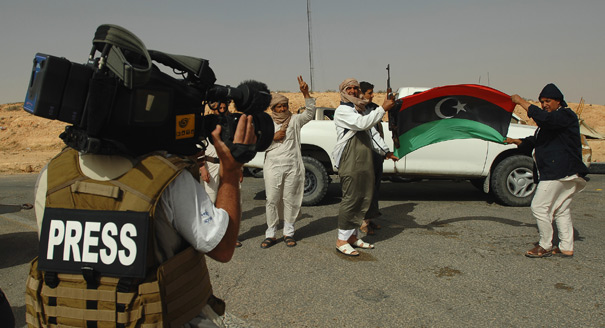Source: Journal of Democracy
The Arab uprisings of 2011 erupted in a region shaped by a decade and a half of revolutionary transformations in the world of Arab media. This revolution was driven by satellite television, local radio, semi-independent press outlets, and the Internet. These new media played a vital role in the 2011 political uprisings. The new media brought critical news and opinion to a broad public, gave voice to the voiceless, built ties between activists and ordinary citizens, and linked local protests into a powerful master narrative of regional uprising.The political uprisings affected the media landscape directly, enabling the rapid launching of dozens of new independent television stations, newspapers, and websites. Within a few years, however, most of the attempted democratic transitions had failed—and the media had surely had something to do with it. Media organs that had proved crucial to the uprisings degenerated with dismaying rapidity into highly partisan platforms serving state authorities or political factions. Why did the media both drive the wave of uprisings that rocked the Arab world in 2011 and contribute to the failure of those uprisings to consolidate democratic institutions?...







